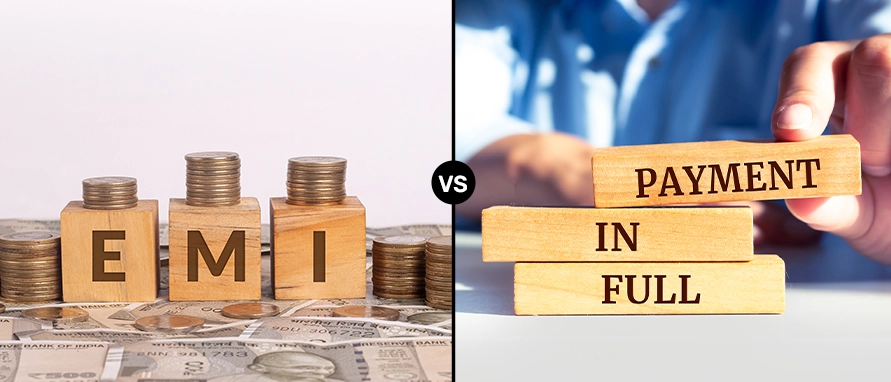Paying the full amount on your credit card immediately after purchase has distinct advantages:
No Interest Charges
Making a full payment upfront eliminates the interest component typically associated with EMI options. This significantly reduces the total cost of your purchase, ensuring that you pay only the actual price of the product. Avoiding these additional charges helps you manage your finances effectively and maintain a healthier financial profile.
Improved Credit Score
Paying the full amount immediately demonstrates financial discipline and responsibility to credit agencies. Timely clearance of dues and avoiding EMI plans means you do not incur any debt, positively impacting your creditworthiness. This enhances your credit score, making future loans or financial approvals smoother and more accessible.
Financial Peace of Mind
By opting for complete payment at the outset, you eliminate future financial burdens, including monthly instalments, late fees, or penalties. This freedom from ongoing obligations reduces stress and uncertainty associated with debt repayment, offering peace of mind and better control over your budgeting and financial planning.
Potential Discounts
Many retailers provide incentives such as discounts, cashback, or reward points for customers paying in full at the time of purchase. Taking advantage of these offers can lead to substantial savings, enhancing the overall value of your purchase while making your expenditure more rewarding and cost-effective.
Simplified Finances
Choosing a single upfront payment simplifies your financial management. It removes the need to monitor multiple EMI due dates and instalment amounts, helping you avoid confusion, administrative hassles, and potential late payments. This streamlined approach provides clarity and ease in managing your personal finances efficiently.
Note: Full payment is particularly beneficial if you have sufficient savings and want to avoid extra costs or debt.
















